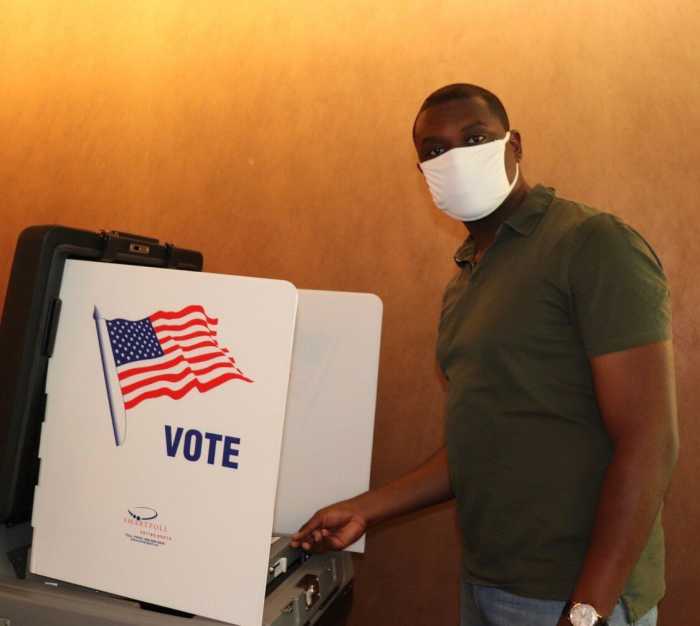With support from nearly two dozen colleagues, three US senators are leading a push to ramp up pressure on the Biden administration to eliminate the Food and Drug Administration’s (FDA) policy restricting men who have sex with men from donating blood.
US Senators Tammy Baldwin of Wisconsin, who is the first out member of the US Senate; Kirsten Gillibrand of New York; and Elizabeth Warren of Massachusetts spearheaded a letter delivered to the Department of Health and Human Services reiterating their calls to do away with the policy and emphasizing the importance of facilitating public awareness campaigns to prepare for the anticipated change — whenever that time does come. The letter was co-signed by other senators representing a wide range of states across the country.
“Instead of the current categorical deferral guidelines, it is time for the FDA to adopt evidence-based policies focused on assessment of an individual’s risk, not inaccurate and antiquated stereotypes,” the letter stated. “With this shift, there will be a significant need for public outreach and education.”
That education, lawmakers stressed, should be coordinated in conjunction with members of the LGBTQ community. The letter also called on the FDA to prioritize outreach to blood donation centers in order “to expedite implementation of revisions to the blood donation guidelines.”
Fears over HIV/AIDS prompted the FDA’s original 1983 policy imposing a lifetime ban on blood donations for men who had sex with men. By 2015, the lifetime ban was changed to include men who had sex with men in the last 12 months, and in 2020, the one-year deferral period was dropped down to three months. There is now greater even urgency surrounding the issue due to a national blood shortage.
The policy shifts have had little meaningful impact because any sexually active men who have sex with men would still be barred from donating blood due to the time-based restriction. That deferral period, meanwhile, is not only stigmatizing but also out of step with advanced screening technology can already detect HIV in blood with incredible precision. Lawmakers further stressed that the use of PrEP as an HIV prevention tool has driven even more men who have sex with men to stay informed about their HIV status and prevent transmission.
The “ADVANCE study,” which is a research initiative intended to establish scientific evidence to inform policy changes, is evaluating whether men who have sex with men could just fill out a donor history questionnaire instead of staying celibate for months to donate blood. The study is spearheaded by three blood centers — American Red Cross, OneBlood, and Vitalant — and is boosted by FDA funding.
“We appreciate FDA’s work on the Assessing Donor Variability And New Concepts in Eligibility (ADVANCE) study, which is focused on evaluating alternatives to the blood donor deferral policy for MSM,” the letter noted. “While no single action can fully address longstanding discrimination, we believe this study will serve as an important first step in making sure that any future donor policy is grounded in science.”
The lawmakers underscored the urgency of the blood crisis — a point echoed earlier this year by out gay Congressmember Ritchie Torres, who met with the president on April 1 to discuss the blood ban. Torres told Gay City News at the time that the president was sympathetic to his request to take action on the policy, but also said “he was also deferential to the process of the FDA and he is loath to intervene.”
In April, the FDA told Gay City News that the concrete results of the study are needed before the agency will consider more changes to the blood donor policy.
“We do not have a specific timeline for when these studies may be completed, but remain committed to gathering the scientific data that can support alternative donor deferral policies that maintain a high level of blood safety,” an FDA spokesperson said at the time.
The letter was also signed by Senators Jeff Merkley of Oregon, Bernie Sanders of Vermont, Sherrod Brown of Ohio, Bob Casey of Pennsylvania, Richard Blumenthal of Connecticut, Cory Booker of New Jersey, Martin Heinrich of New Mexico, Ed Markey of Massachusetts, Christopher Coons of Delaware, Bob Menendez of New Jersey, Mazie Hirono of Hawaii, Catherine Cortez Masto of Nevada, Ben Cardin of Maryland, Ron Wyden of Oregon, Tammy Duckworth of Illinois, Angus King of Maine, Jacky Rosen of Nevada, Tina Smith and Amy Klobuchar of Minnesota, Tim Kaine of Virginia, Michael Bennet of Colorado, and Brian Schatz of Hawaii.
































